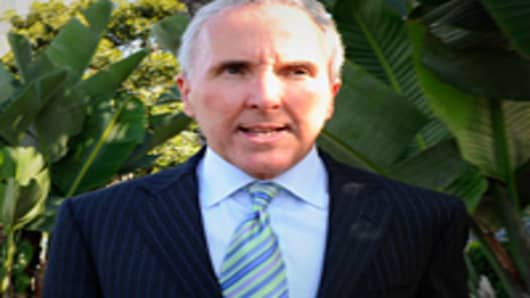On Wednesday, Major League Baseball commissioner Bud Selig announced that the league would be taking over financial control of the Dodgers by appointing a representative to oversee its actions.
Seven and half hours later, Dodgers owner Frank McCourt said that it was “hard to understand the commissioner’s decision” based on the fact that the Dodgers were compliant with baseball’s financial guidelines.
Remember folks, you can’t spell McCourt without “court” and he knows that place better than most. So if McCourt does sue, even though he did sign the typical owner’s agreement that he wouldn’t do so, does he have a shot?
Here are the facts.
Selig presumably took the action after McCourt, already embroiled in a messy divorce case with his ex-wife Jamie, reportedly took out a $30 million loan to meet payroll. The Los Angeles Times reported last week that the loan was given to McCourt personally rather than being backed through the team, so he didn’t have to get Selig’s approval.
This is key because Selig previously rejected a much bigger loan from Fox to McCourt that would have used the team’s television deal as collateral. Something like this actually isn't unprecedented.
There’s no debate that the Dodgers are a mess. The divorce trial has revealed that McCourt redirected more than $100 million from the Dodgers to fund his lavish lifestyle. But can Selig legally use his “best interests of baseball” authority to stop McCourt, who has leveraged the Dodgers to the hilt?
For that I turned to Andrew Zimbalist, an economics professor at Smith College and author of “In the Best Interests of Baseball? The Revolutionary Reign of Bud Selig.”
“The courts have generally agreed that leagues have a special characteristic that separates them from other businesses in that they have to cooperate with each other,” Zimbalist said. “Because they are a unique business, they grant extraordinary powers to the commissioner to enforce certain governing rules.”
It’s worth mentioning that in 1992, Selig’s predecessor Fay Vincent, lost a lawsuit brought about by the Chicago Cubs when he tried to use his “best interests” power to move them from their traditional east division to the west.
Last year, Selig tried to use the “best interest” clause to tell those that had lent money to Rangers owner Tom Hicks to accept a deal that would sell the Rangers to Nolan Ryan and Chuck Greenberg. The lenders didn’t accept that, brought it to auction, and they got almost $100 million more for the team.
Zimbalist says that as long as Selig’s “best interest” use is not contradicted by anything else in the league’s constitution, it is permissible.
“I’d argue that the Dodgers case is a fairly typical case,” said Zimbalist, also author of the recently published Circling the Bases: Essays on the Challenges and Prospects of the Sports Industry. “This is a marquee franchise that has been mismanaged by encumbering Dodgers assets one after the other.”
Zimbalist expects McCourt to argue that he is being discriminated against. To do that, he’ll use the case of the Mets, who are still owned by the Wilpon family. McCourt was never lent money by Major League Baseball. The Mets were. They got $25 million from the league last November to cover shortfalls. Then there’s the $1 billion lawsuit brought by the Madoff trustee, which they say has no merit, hanging over their heads.
Zimbalist said that although McCourt will argue that Selig and the Wilpons are friends and are therefore given preferential treatment, the Dodgers troubles have to do with mismanagement, while the Mets troubles have more to do with their Madoff investment fallout.
But if you compare the debt that Tom Hicks had on the Rangers before Major League Baseball finally took control with McCourt, I bet it wouldn't be far off. And that's a recent case. That's why I think that the expected McCourt defense of "Bud's Boys Club" might not be that far off.
Questions? Comments? SportsBiz@cnbc.com




